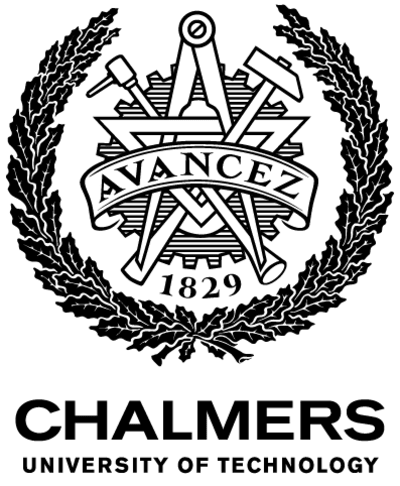
MSc in Complex Adaptive Systems
Chalmers University of Technology

Key Information
Campus location
Gothenburg, Sweden
Languages
English
Study format
On-Campus
Duration
2 years
Pace
Full time
Tuition fees
SEK 160,000 / per year *
Application deadline
Request info
Earliest start date
Sep 2024
* tuition fees for non-EU/EEA students
Introduction
The human brain, economic markets, our immune systems — even the formation of clouds. All examples of complex adaptive systems, formed from multiple interacting components, often non-linear and dynamic, lead to a collective structure and organization across multiple levels.
The behavior of complex adaptive systems in nature has served as inspiration for all sorts of advances and methodologies in information processing, from artificial neural networks inspired by neurobiology to genetic algorithms and programming based on natural evolutionary processes — even the design of artificial life. Further examples include the fluctuations of stocks and shares, the dynamics of dust particles in engine exhausts, and earthquake prediction. The challenges of adaptive learning — teaching robots to respond to unexpected changes in their environment, for example, is also an extremely important emerging field.
With a truly interdisciplinary approach, encompassing several theoretical frameworks, this Master’s program will provide you with a broad and thorough introduction to the theory of complex adaptive systems and their application to the world around us. You will gain the knowledge and tools necessary to model and simulate complex systems, learning how to use and build algorithms for analysis, optimization, and machine learning.
The program is based on a physics perspective, with a focus on general principles, but we also offer courses in information theory, computer science, optimization algorithms, ecology, and genetics, as well as adaptive systems and robotics. Besides traditional lectures on simulation and the theory of complex systems, the program is largely based on numerical calculations and simulation projects. Depending on your course selection, you will also be able to do practical work in our robotics lab.
The subjects of physics, simulation, modeling, robotics, and autonomous systems form the fundamental areas of the master's program. Elective courses handle a very wide range of topics, including programming, network theory, turbulence, genetics, game theory, biophysics, chaotic dynamics, fractals, and dynamical stochastic processes.
Career
Computer modeling and programming skills, together with expertise in a range of modern algorithms, such as deep machine learning and stochastic optimization, acquired in the program, open a wide range of possibilities on the job market. Typical employment is often related to data science or advanced engineering topics. For example, in the field of intelligent control systems, such as the development of autonomous driving.
Previous students from this program often find their jobs at larger technology-intensive companies such as Volvo, Volvo Cars, Ericsson, Saab, AstraZeneca, Scania, etc., or smaller start-ups. Some of our previous students have also chosen to continue towards a Ph.D. in a wide spectrum of academic fields ranging from computer science to physics and biotechnology.
General entry requirements
A Bachelor's degree in Science, Engineering, Technology, or Architecture
To fulfill the general entry requirement for a Master's program at Chalmers (at advanced level/the second cycle), the prospective student must hold a degree that is equivalent to a Swedish Bachelor's degree (minimum 3 years, 180 Swedish higher education credits) in either Science, Engineering, Technology or Architecture.
- All applicants must document their formal academic qualifications to prove their eligibility. Only documentation from internationally recognized universities will be approved by the Swedish Council for Higher Education which manages the website universityadmissions.se.
- If an applicant is also a holder of a second degree such as a Master's degree, that may be to fulfill specific (course) requirements, it cannot be used to fulfill the general entry requirement on its own.
In your final year of Bachelor's Studies
Students in their last year of studies who don't yet have documentation of their soon-to-be-completed degree can be accepted.
Restrictions
Degrees that are constructed on one another cannot consist of the same course
Applicants who fulfill the general entry requirements for the second cycle (master’s level) programs and eventually specific entry requirements can be admitted to a master’s program. Applicants cannot be evaluated as unqualified in the qualifying academic merits which include courses from the program’s plan in those programs that they have applied for if that occurs.
Courses included in an earned first cycle degree (bachelor’s level) or professional qualification of at least 180 cr. (180hp) or the equivalent foreign qualification that are prerequisites for master’s qualifications may not be included in the higher qualifications. This also applies to prerequisite courses for master’s programs, regardless of whether they are included in the underlying qualification. *
*) Local Qualifications Framework for Chalmers University of Technology - first and second cycle qualifications.
Restrictions for Citizens from the Democratic People’s Republic of Korea (North Korea)
Chalmers cannot admit applicants with citizenship of the Democratic People’s Republic of Korea only to any program or course, due to the Council Regulation (EU) 2017/1509 of 30 August 2017 concerning restrictive measures against the Democratic People's Republic of Korea and repealing Regulation (EC) 329/2007.
For applicants with double citizenship of which one is of the Democratic People's Republic of Korea and the other of another country, the citizenship of the other country has precedence in this respect.